On Radio-Canada’s flagship French-language book program, Plus on est de fous, plus on lit! Donald Cuccioletta calls The Complete Muhammad Ali by Ishmael Reed an “excellent book” that must be read to understand the boxer and his times. If you understand French, you are invited to listen to this interview. It begins at the 17th minute.
The Complete Muhammad Ali: “a must-read” PBS/Book View Now
Ishmael Reed’s The Complete Muhammad Ali continues to shake up all the received ideas about Muhammad Ali, the Nation of Islam, the Honorable Elijah Muhammad, Malcolm X, boxing as a whole, racism in boxing, and much much more.
 Ishmael Reed, a guest at the National Book Festival in Washington D.C., was interviewed on the PBS Book View Now live stream by Rich Fahle and Kwame Alexander. Book View Now insisted on Twitter that “The Complete Muhammad Ali from @BarakaBooks is a must-read!”
Ishmael Reed, a guest at the National Book Festival in Washington D.C., was interviewed on the PBS Book View Now live stream by Rich Fahle and Kwame Alexander. Book View Now insisted on Twitter that “The Complete Muhammad Ali from @BarakaBooks is a must-read!”
Watch the interview on Youtube (September 5, 2015)
Ishmael Reed in the Ring – Counterpunch
Ron Jacobs reviews The Complete Muhammad Ali. (order here.)
Ishmael Reed Gets in the Ring
Counterpunch, June 19-21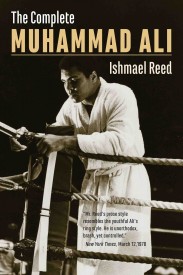
Ishmael Reed is one of the English language’s most important contemporary writers. His novels reveal a witticism and ironic sense found in very few other writers of the period. His essays and articles challenge commonly held dogmas in both mainstream thought and among those outside the popular mind. An intelligent reader of his works cannot help but be challenged by the points he raises, his use of the language, and the courage present. Liberals, socialists, right wingers and libertarians; men and women, LBG and T–everyone is open to Reed’s insightful and piercing pen as he points us all to an essential fact–our shared humanity and its manipulation by the powerful and their wannabes.
Reed’s mammoth biography of the Greatest of All Time, Muhammad Ali, will be published in July. Appropriately titled The Complete Muhammad Ali, this book is more than just a biography of the man the world calls Muhammad Ali. It is also a history of the sport and business of boxing, Elijah Muhammad and the Nation of Islam, the 1960s civil rights movement in the United States, and a myriad of other associated topics–even the history of the African continent. It also serves as a critique of sports in a capitalist system, the domination of the US sports media by white (often openly racist) men, and the Ali hagiography business. From the late jazz violinist Billy Bang to Hugh Masekela; from Kareem Abdul Jabbar to Howard Cosell, this text is greater than the massive sum of its parts.
Simply put, it is a fascinating document. I say this as a fan of Ishmael Reeds writing and as a historian very interested in discovering and publicizing the histories we are not told. The book is comprised of Reed’s detailed and entertaining narrative intermingled with numerous interviews from people in numerous walks of life.
Reed challenges the commonly held idea that Ali was the first racially proud boxer since Jack Johnson. He does so by citing incidents of racism Joe Louis and other fighters before Ali experienced and their refusal to bend to them. He also argues, rightfully so, that the racism those men lived with was rawer and more violent than that which has existed since the civil rights movement began in the 1950s, at least as far as Black celebrities were concerned.
In writing this book, Ishmael Reed has created the most complete biography of one of history’s most famous personalities. In addition, he has provided the reader (and the world) with a revelatory look at the world Muhammad Ali resided in. It was a world of money, racial animosity, religion, and politics. It was (and is) a world peopled with luminaries and egotists, humble souls and family. It is a tale not only of a life that reacted to the times, but a detailed look at the influence Muhammad Ali and the others discussed in the book had on those times.
Like almost any human being, Muhammad Ali was a complex person. The fact that he spent so much time on the world stage led some to think his contradictions were weaknesses or signs of something less than genuine. Ishmael Reed has done a detailed and well-rounded presentation of the man and his complexities. It was and is a life representative of the times. This quote from Harry Belafonte makes the point quite well: “He was the poster boy for what the struggle was all about.”
Not everyone who appears in this biography agrees with Belafonte. Some do not even consider Ali the greatest boxer of all time, pointing instead to Sugar Ray Robinson and even Joe Louis. I am not enough of a boxing fan to have any opinion, but suffice it to say, these comments will certainly raise old arguments amongst those who are fans. The more important aspect of Reed’s interviews and often confrontational challenge to the legend of Ali is to his status as a civil rights champion on par with Martin Luther King, Jr. Reed is not alone in this perspective. Indeed, numerous interviewees agree with Reed, while allowing for the fact that Ali’s domination of the world stage—in part because of his status as a sport champion—lent the civil rights struggle an international cachet it was unlikely to attain without the commanding presence of Muhammad Ali. Furthermore, argue many of those who appear in The Complete Muhammad Ali, it was Ali’s stand against the US military draft that clinched his public status as someone who was more than a boxer, more than an athlete. Personally speaking, I concur completely with this latter sentiment. When Ali refused the military draft, it validated my growing opposition to the US war in Vietnam and called the entire US imperial operation into question among some of my older and more knowledgeable peers. This phenomenon repeated itself millions of times in cities, gyms and schoolyards around the United States and the world.
One question Reed asks every interviewee is why they think Muhammad Ali is so well liked now by the establishment. Every single response to this query, whether from a member of the Nation Of Islam, a media pundit or a black radical, is essentially the same. Ali is so well liked now, they say, because he is “safe.” His illness has rendered him often incapable of speech and he often seems to be weaker than his closest confidantes claim he actually is. Some of the answers also mention Ali’s age, pointing out that white America has always found old Black men “harmless.” Critic Jill Nelson goes the furthest, remarking that white America always found Ali to be safe as long as he was in the ring. It was when he acted publicly outside the realm of boxing that he scared and angered the white establishment. White America likes their Black men in cages, whether they are made of elastic ropes or steel bars.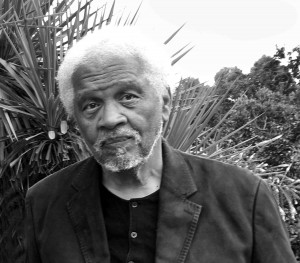
The Complete Muhammad Ali is twelve solid rounds of writing. Throughout the text, Ishmael Reed jabs and juts, fades and dances. He even plays a little rope-a-dope. In the end, his biography of Muhammad Ali stands above its competition. It is not always pretty and parts of it leave the legend of Ali somewhat bloodied. In doing so, it rings closer to the truth than the sanitized tale today’s public has accepted as real. This text is an in depth and studied look at a man, a sport, a nation and a history. In his contemplation of all of these, Ishmael Reed paints a canvas that is simultaneously darkened with shadows and brightened with hope; defined by history that is certain to be riven with a fair amount of controversy. Muhammad Ali became and remains much bigger than the man who bears that name. Ishmael Reed’s biography of Ali is similar in its breadth and scope.
Ron Jacobs is the author of Daydream Sunset: Sixties Counterculture in the Seventies published by CounterPunch Books. He lives in Vermont. He can be reached at: ronj1955@gmail.com.
Ishmael Reed on Muhammad Ali book – video
The Complete Muhammad Ali by Ishmael Reed will be available in July 2015. Here he talks about the book.
Ishmael Reed describes this book as “The Complete Muhammad Ali” because most of the hundred odd books about the Champion are “either too adoring or make excessively negative assertions.” One biography, for instance, blames Ali, along with Gerald Ford, for losing Vietnam, another calls him a “malicious buffoon,” while others—The Ali Scribes—make him into a Saint.
The Complete Muhammad Ali charts Ali’s evolution from Black Nationalism to a universalism, but gives due credit to the Nation of Islam’s and Black Nationalism’s important influence on Ali’s intellectual development. Instead of being dismissed as “Lunatics” and “thugs,” Black Nationalists and Nation of Islam members are given a chance to speak up. There is something to the remark made by Sam X, who introduced Ali to the Nation of Islam. He said that without Ali’s mentor Elijah Muhammad, nobody would ever have heard of Muhammad Ali.
Among the many voices omitted from other books, Filipino American writer Emil Guillermo, for instance, recounts how “The Thrilla’ in Manila” brought the Philippines into the twentieth century.
More than a biography, The Complete Muhammad Ali is a fascinating portrait of the twentieth century and the beginning of the twenty-first.
The book includes more than 30 previously unpublished photos.
Ishmael Reed is a prize-winning essayist, novelist, poet and playwright. He taught at the University of California-Berkeley for thirty-five years, as well as at Harvard, Yale and Dartmouth. Author of more than twenty-five books, he is a member of Harvard’s Signet Society and Yale’s Calhoun Society. He lives in Oakland, California.
Other books by Ishmael Reed published by Baraka Books include Barack Obama and the Jim Crow Media, The Return of the Nigger Breakers and Going Too Far, Essays on America’s Nervous Breakdown.
Baraka Books at Toronto Book Fair – Publishing With an Attitude
Baraka Books | Proudly Going Where Others Fear to Tread
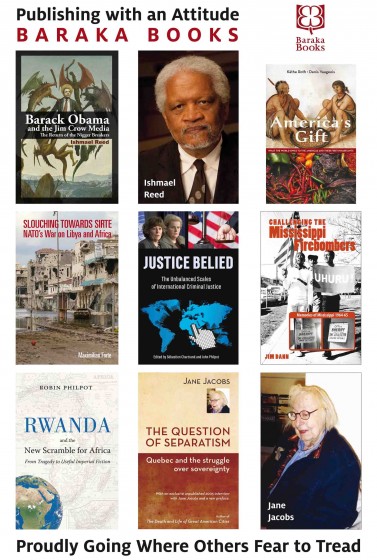
Look For This Sign, Booth 108
Baraka Books is pleased to announce that we will be present at the Toronto International Book Fair, Nov. 13-16 at the Metro Toronto Convention Centre (N. Building). (Opening hours: 10 am to 8 pm, Friday through Sunday.)
Look for us at Booth 108 where we will be teamed up with A Different Booklist and Caribbean Book Fair. The University of the West Indies Press will also be exhibiting their books. You’ll find all kinds of books on Africa, Black History and Culture, Quebec history and politics, Indigenous Peoples’ history, and much much more. This booklist will be DIFFERENT.
Below are just a few of the titles that we will be featuring. For more on these books just flip through our Catalogue.
Some of our authors will be present for book signings. We hope to see you there. And please tell your Toronto friends about it.
Nonfiction
Justice Belied, The Unbalanced Scales of International Criminal Justice, Sébastien Chartrand & John Philpot, Editors
Slouching Towards Sirte, NATO’S War on Libya and Africa, by Maximilian Forte
Barack Obama and the Jim Crow Media, The Return of the Nigger Breakers, by Ishmael Reed
Dying to Live, A Rwandan Family’s Five-Year Flight Across the Congo, by Pierre-Claver Ndacyayisenga
Challenging the Mississippi Firebombers, Memories of Mississippi, 1964-65, by Jim Dann
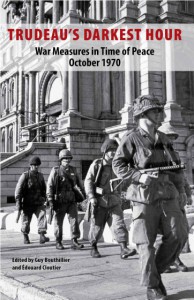 The Question of Separatism, Quebec and the Struggle over Sovereignty, by Jane Jacobs
The Question of Separatism, Quebec and the Struggle over Sovereignty, by Jane Jacobs
America’s Gift, What the World Owes to the America’s and Their First Inhabitants, by Käthe Roth and Denis Vaugeois
Trudeau’s Darkest Hour, War Measures in Time of Peace, October 1970, Guy Bouthillier, Édouard Cloutier, editors
Journey to the Heart of the First Peoples Collections, Musées de la civilisation
Rwanda and the New Scramble for Africa, From Tragedy to Useful Imperial Fiction, by Robin Philpot
The History of Montréal, The Story of a Great North American City, by Paul-André Linteau
A People’s History of Quebec, by Jacques Lacoursière
An Independent Quebec, The Past, the Present and the Future, by Jacques Parizeau
Hanging Fred and a Few Others, Painters of the Eastern Townships, by Nick Fonda
Going Too Far, Essays on America’s Nervous Breakdown, by Ishmael Reed
The Franz Boas Enigma, Inuit, Arctic, and Sciences, by Ludger Müller-Wille
Fiction
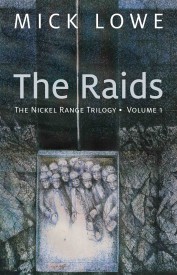 The Raids, Volume 1 of the Nickel Range Trilogy, Mick Lowe
The Raids, Volume 1 of the Nickel Range Trilogy, Mick Lowe
Principals and Other Schoolyard Bullies, Short Stories by Nick Fonda
I Hate Hockey, by François Barcelo
21 Days in October, by Magali Favre (Young Adult)
The Adventures of Radisson 1, Hell Never Burns, by Martin Fournier (Young Adult)
Robin Philpot, Publisher
How Two 19th Century Women Stormed the Oldboys (Architectural) Citadel – Forthcoming 2014
In 2014, Baraka Books will publish Storming the Oldboys Citadel, Pioneer Women Architects of the Nineteenth Century North America by Carla Blank and Tania Martin.
This book will focus on the lives and works of two of the very first women of European American ancestry to practice architecture in North America during the nineteenth century. Mother Joseph du Sacré-Coeur, a Sister of Providence (born Esther Pariseau in 1823, in St. Elzéar, Québec; died Vancouver, Washington, 1902) is credited with works built in the present states of Washington, Idaho, Montana, northern Oregon, and in British Columbia. Louise Blanchard Bethune (born Jennie Louise Blanchard in 1856, in upstate New York; died New York City 1913) designed and built works in the Buffalo, New York area.

Tania Martin and Carla Blank in front of the Lafayette Hotel – Photo, Tennessee Reed
Carla Blank and Tania Martin recently travelled to Buffalo, New York, and Seattle and Vancouver, Washington, to research the book. The Wall Street Journal has run this article about the Lafayette hotel in the September 11 issue of the paper.
_____________________________
“How Buffalo’s Lafayette Hotel Went from Fleabag to Fabulous
I became interested in the Lafayette Hotel in Buffalo, N.Y.,when my partner, novelist Ishmael Reed, returned from a trip to his hometown. He reported that he happened to walk into the lobby of the hotel while attending a Buffalo book fair, and noticed a plaque, which cited Louise Blanchard Bethune (1856-1913) as the building’s architect and for being the first American woman to open her own architecture office (1881) and the first woman to become a fellow of the American Institute of Architects (1889). He was astonished that a woman in the 19th Century could find a place in a profession so adamantly dominated by men.
Carla Blank is the author of the textbook, Live On Stage! (Dale Seymour, an imprint of Pearson Education, 1997, 2000), the historical reference, Rediscovering America, the Making of Multicultural America, 1900-2000 (Three Rivers Press, 2003) and co-editor with Ishmael Reed of the anthology PowWow, Charting the Fault Lines of the American Experience, Short Fiction from Then to Now (Da Capo Books, 2009). She was contributing editor on three other anthology projects edited by Ishmael Reed: From Totems to Hip-Hop: A Multicultural Anthology of Poetry Across the Americas, 1900-2002 (Thunder’s Mouth Press, 2003); MultiAmerica, Essays on Cultural Wars and Cultural Peace (Viking, 1997) and Califia, The California Poetry (Y’Bird Books, 1979); in addition to publishing topical essays related to arts and culture in the San Francisco Chronicle, El Pais, Hungry Mind Review, Green Magazine and online at CounterPunch and Konch magazines. She lives in Oakland, California.
Tania Martin has published essays in many scholarly journals related to her investigations into the history of architecture, the built environment and North American religious institutional structures. She is a Professor at the Université Laval School of Architecture where she has held the Canada Research Chair in Built Religious Heritage since 2005; served a four year term as an appointed member of the Historic Sites and Monuments Board of Canada; and is also affiliated with several professional associations, including the Vernacular Architecture Forum. She lives in Quebec City.

Architect and builder Mother Joseph, born Esther Pariseau in Saint-Elzéar, Québec in 1823
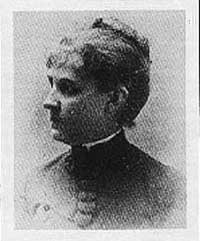
Louise Blanchard Bethune, born in Upstate New York in 1856

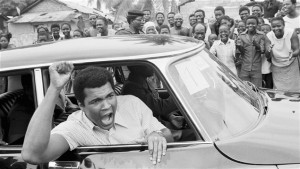
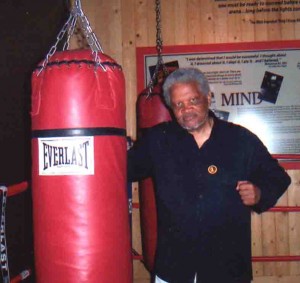
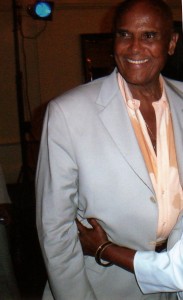
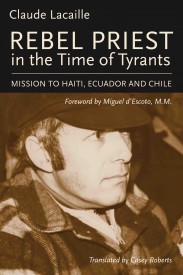 Rebel Priest in the Time of Tyrants, Mission to Haiti, Ecuador and Chile by Claude Lacaille, Foreword by Miguel D’Escoto, M.M. (translated by Casey Roberts) | June 2015, $24.05 | pre-orders March
Rebel Priest in the Time of Tyrants, Mission to Haiti, Ecuador and Chile by Claude Lacaille, Foreword by Miguel D’Escoto, M.M. (translated by Casey Roberts) | June 2015, $24.05 | pre-orders March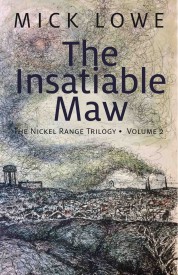 The Insatiable Maw, The Nickel Range Trilogy, Vol. 2 by Mick Lowe | May 2015, $19.95 | pre-orders March
The Insatiable Maw, The Nickel Range Trilogy, Vol. 2 by Mick Lowe | May 2015, $19.95 | pre-orders March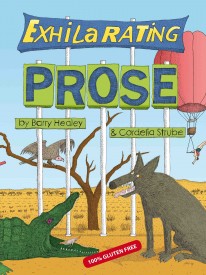 Exhilarating Prose by Barry Healey and Cordelia Strube | May 2015, $19.95 | pre-orders March
Exhilarating Prose by Barry Healey and Cordelia Strube | May 2015, $19.95 | pre-orders March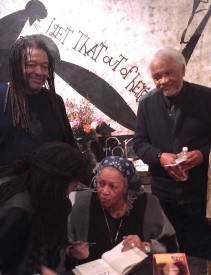
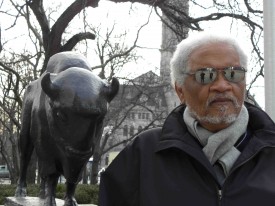 GOING TOO FAR, ESSAYS ABOUT AMERICA’S NERVOUS BREAKDOWN will be launched on Friday, October 12 starting at 6 p.m.
GOING TOO FAR, ESSAYS ABOUT AMERICA’S NERVOUS BREAKDOWN will be launched on Friday, October 12 starting at 6 p.m.

Facebook